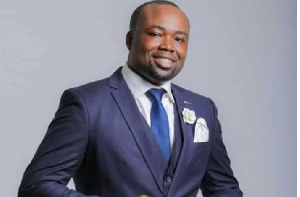There has been a lot of studies on the role of migrants in the development of their Homeland. The studies looked at the effects of migration on the sending country, remittances from the migrants as a source of significant capital flows into the develpoment of the sending countries. The role of savings by returned migrants in development has also been highlighted by various studies such as findings for Mexico (Escobar and Martinez 2000) and China (Murphy 2000). Ghana is among a group of Third World countries that are increasingly relying on small business sector an an engine of growth, clearly as demonstarted in the Vision 2020 and the Poverty Reduction Strategy which was also high-lighted by various speakers at the Homecoming Summit.
In the late 1970s and 1980s as we are all aware, Ghana suffered severed economic hardships as well as large expolsion of its citizens from neighbouring countries, thus adding to the huge economic burden that she was facing. Ghana also lost most its skill labour, infact Ghana was the only sub-Saharan African country that lost a lot of her skilled labour. Due to the economic hardship back home as result of Structural Adjustment Programmes those sons and daughters that Ghana send abroad as part of the Study Abroad Policy did not returned after their studies.
As a results of the structural programmes most jobs were lost in the public/government sector thus there was a shift into the informal sector (popularly known as "Magazines and Ayebwe Towns") which played an important role in those turbulent years. At later years ex President Rawlings government came to realised that what these small sector informal enterprises need was start up capital...... but the question is, what was done about this? The PNDC government after liberalising the financial and the Banking sector realised that inflows from migrants and savings from returning migrants represents a source of very important capital...capital that Ghana could have easily used to coushion the impact of the Structural Adjustment policies on the poor but rather went to feul the spending of the urban elite classes.
In the late 1990s I did wrote to the Daily Graphic to question the uses of these large inflows. At the time these were averaging $350 million dollars annually. These global remittances from migrants to their home countries is estimated to be over$200 billion dollars and over 20% higher than global development assistance. The last estimate (2002) of remittances announced by the Governor of Bank of Ghana was about $1.5 billion dollars.
This brings me back to the topic of my analysis. Although this was the topic for my undergraduate dissertation a decade ago, a young Ghanaian Engineering Student in Massachusetts called Esi Woarabea Cleland (former student of Wesley Girls High School) posed this question at her web site for debate. Esi recognise that with over 2 million Ghanaians residing out side the country, (majority could be classified as very skilled excelling in their field of studies and business) the government can encourage these group to go back and help in the nation building by implementing those policies like good school, health care and infrastructure . Hence with the country having been touted as once a "success story" and now as the "Gate Way " to the sub-Region, young Esi and her compatriots have realised that the Homeland is where their future reisde once they have completed their studies. These youth are the very human caiptal that Ghana woul! d need to attract back to the country if she is to achieve the middle income status. These inflows should be used to build human capital, physical capital and financial capital inorder to accerelate the developmental process, on the way not forgetting poverty alleviation strategies, including policies to combact HIV/AIDS.
The question that Esi Woarabae Cleland did posed falls within a study by Ilahi (1999). IIahi did argue that Pakistani migrants in diaspora shows a high sense for self employment over waged labour and that those who plan to return back to their homeland save more whilst working abroad. This sense of savings and the plan of returning to the Homeland has also been significantly adopted by the Ghanaian migrants, even extending to the second and third generations. This is helped by the emergance of Ghanaina radio stations, various Hometown Associations and regular visits by our Nananom. In this aspect I will pay a glowing tribute to Nana Osei Tutu II and Nana Amotia Ofori Panin II, Nkoransah chief Nana Kudom and Nana Opoku Baah Bentu( who also happens to be my father -in- Law) for their impartial advice they give to all Ghanaians irrespective of where one comes from to remember that the Homeland it is now their turn to ! pay back what the homeland gave them ie good foundation in education and health care(free until 1983). These traditional rulers have used the opportunity of their travels to promote small business formation aimed at promoting development among the Diasporan. This is in sharp contrast to the earlier findings in the literature about the uses of remittances going into "conspicuous" consumption such as household activities. The inflows from Ghanaians are going into job creating businesses.
The issue now is to how to stop the tide of massive brain drain and return to the course of development....the very essence of Esi's question.
What is the government doing to encourage people like Esi to return back after their studies? Are they using these inflows to develop Social and Physical Infrastructure that is necessary for a successful take off?
It is true that geo-politics does plays an important role in the development debate, as was the case of South Korea "Guided Capitalism" or Brazil " Dependence Capitalism", yet South Korea and now China use the huge inflows both from its nationals and FDI, ( Foriegn Direct Investment) to first developed their Human and Physical capital thereby creating necessary conditions for a successful take off. Malaysia and the rest of the South East Asia countries also adopted the same strategies. In the case of Ghana, rent seeking (bribe) was the norm and still is, as the current mess in the award of contracts typified. The condition for a successful take off have to be created for our future leaders like Esi who would be the captains of Industry and Commerce. The debt owed by those that Ghana trained but migrated are being paid in the form of large inflows pouring into the country from the diaspora. The government should add these inflows into the de! velopment plans and fully accounted for. It is important that these inflows are channelled into projects that would benefit the country and not go into the pockets of corrupt politicians and government officials. Rent seeking should thing of the past. The development of the country should come before self as was the case in South Korea and Malaysia, countries that Ghana always compare itself with.
The Asia NICs( Newly Industrialised Countries) put the interest of their countries first when they embarked on their developments rather than looting from the state coffers or building large fanciful houses for themselves and their hangers on.
Ministers must declear their assets before and after holding office. This declaration should be made accessable for all to see, including the assets of the president and his vice. They should be accountable to the people who elected them, not be lords over them as is the case in most sub-Saharan countries including Ghana. They should not use political office to enrich themselves. They can take example from three very noble sons of Mother Ghana who forwent all the finest things that life can offer them to answer the call of duty..... they are Nana Amotia Ofori Panin II of Akyem Abuakwa, Nana Osei Tutu II the Asantehene, Nana Kudom of Nkoransah... these traditional rulers and countless others are the ones that are leading the way. Both Nana Osei Tutu II and Nana Amotia Ofori Panin II, whenever they visit London or Washington, they not only appealled to the Asantes or Akyems but to all Ghanaians about the essence of contributing to nation building. The leadership of these rulers are quiet phenomenal.... crossing the tribal divide........sadly our politicians are seen in different light...ie as corrupt. By Pledging themselves to the service of their people these rulers can teach our politicians about what is " Service to the pe! ople". As late president Kennedy remarked on his swearing in as President of United States some 4 decades ago " Ask not what your country can do for you, but what you can do for your country". This is what Esi and the youth are crying for. All what they are asking for is to be given the opportunity that Dr Nkrumah gave to our parents that is decent EDUCATION, HEALTH CARE and the selfless call to duty without looting from the GHANAIAN PEOPLE and hanging on to power when they know that it is time for someone to take the batton of the Presidency. God Bless Ghana.
London.

Views expressed by the author(s) do not necessarily reflect those of GhanaHomePage.


















